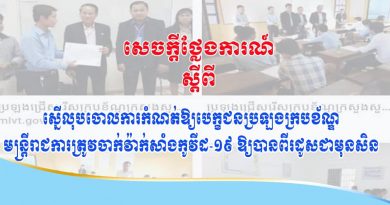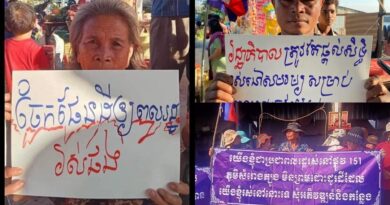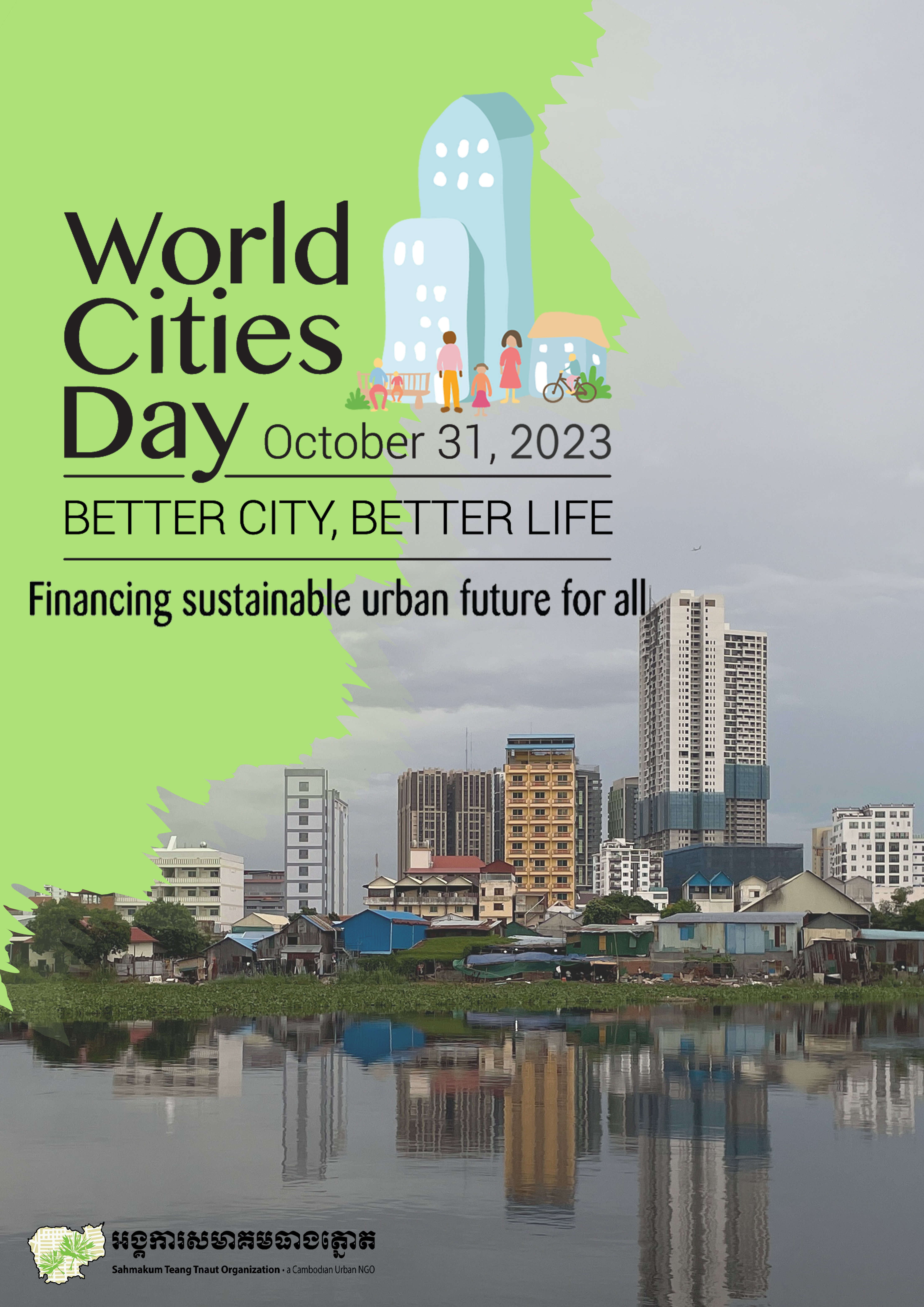Phnom Penh, 11 March 2021 – We, the undersigned civil society groups, are dismayed at reports that a police officer faced disciplinary action for posting on her personal Facebook account a picture of herself nursing her baby while in uniform. Sadly, this occurred only a day after International Women’s Day, exemplifying the challenges that must be overcome in order for women’s rights to become a reality in Cambodia.
Women should not be forced to choose between doing their job and providing vital care for their children. That a working mother would be scolded for attempting to do both – as is the case here – illustrates that the government has failed to protect women’s rights at work, despite Cambodia’s ratification of the Convention on the Elimination of All Forms of Discrimination against Women (CEDAW) which protects the right to work free from discrimination.
Women make up nearly the same share of the labor force as men in Cambodia, but they remain underrepresented in leadership positions. Obsolete mindsets and entrenched cultural norms are at the root of this worrying reality. Moreover, the failure of many workplaces to provide adequate childcare facilities or accommodate working mothers’ needs are major obstacle preventing women from climbing the career ladder. For women’s rights in the workplace to be realized, it is paramount that childcare equipment and facilities, and breastfeeding breaks with pay, are made easily available to all working mothers, enabling them to pursue their career.
It is disturbing that the officer was originally encouraged to apologize for offending the dignity of her office and women and made to sign a contract agreeing to discontinue her behavior. Although – following significant public outcry – her supervisors later gave the official reason for her reprimand as her failure to seek their permission prior to posting the breastfeeding picture on Facebook, this explanation raises further concerns about freedom of expression. The right to express oneself is an internationally recognized right enshrined in Cambodia’s constitution, not a privilege or a favor that is granted; as such, it may only be restricted in narrowly-defined conditions, none of which were met in this case.
In view of all of the above, we call for the police officer’s supervisors to issue a public apology for their disappointing handling of the case and for the harm it may have caused their subordinate and other women across the country. Corrective action should be taken by the National Police to make sure that such an incident does not repeat itself and to ensure gender equity in its workforce.
We call on the Royal Government of Cambodia:
– To take appropriate measures to ensure that all working parents are supported in the workplace and that facilities accommodating working mothers’ particular needs are made available to them;
– To take steps to ensure that women’s rights in the workplace are better respected and promoted;
– To implement already accepted recommendations from its 2019 Universal Periodic Review, including redoubling efforts to eradicate discrimination against women;
– To adopt maternity protections laid out in ILO Convention 183; and
– To refrain from unnecessarily restricting freedom of expression.
This joint statement is endorsed by:
| 1 | Action For Development (AFD) |
| 2 | ActionAid Cambodia (AAC) |
| 3 | Advocacy and Policy Institute (API) |
| 4 | Alliance for Conflict Transformation (ACT) |
| 5 | Association of Domestic Workers (ADW) |
| 6 | Association to Support Vulnerable Women (ASVW) |
| 7 | Cambodia Food Service Workers Federation (CFSWF) |
| 8 | Cambodia Labor Confederation (CLC) |
| 9 | Cambodia Tourism Workers Union Federation (CTWUF) |
| 10 | Cambodia’s Independent Civil-Servants Association |
| 11 | Cambodian Center for Human Rights (CCHR) |
| 12 | Cambodian Center for Independent Media (CCIM) |
| 13 | Cambodian Disabled People’s Organization(CDPO) |
| 14 | Cambodian Health and Education for Community (CHEC) |
| 15 | Cambodian Human Rights and Development Association (ADHOC) |
| 16 | Cambodian League for the Promotion and Defense of Human Rights (LICADHO) |
| 17 | Cambodian Women’s Crisis Center (CWCC) |
| 18 | Cambodian Youth Network (CYN) |
| 19 | Center for Alliance of Labor and Human Rights (CENTRAL) |
| 20 | CHI KOR KROM 175 Families Community |
| 21 | Coalition of Cambodian Farmer Community (CCFC) |
| 22 | Community Legal Education Center (CLEC). |
| 23 | DanChurchAid Cambodia |
| 24 | Equitable Cambodia (EC) |
| 25 | Gender and Development for Cambodia (GADC) |
| 26 | Gender and Development Network (GADnet) |
| 27 | Independent Democracy of Informal Economy Association (IDEA) |
| 28 | Klahaan organization (Klahaan) |
| 29 | Legal Support for Children and Women (LSCW) |
| 30 | Mlup Baitong |
| 31 | Neutral and Impartial Committee for Free and Fair Elections in Cambodia (NICFEC) |
| 32 | Reproductive Health Association Cambodia (RHAC) |
| 33 | Sahmakum Teang Tnaut (STT) |
| 34 | SILAKA Cambodia |
| 35 | The Cambodian NGO Committee on CEDAW (NGO-CEDAW) |
| 36 | The Coalition for Integrity and Social Accountability (CISA) |
| 37 | Transparency International Cambodia |
| 38 | Women Peace Makers (WPM) |
| 39 | Youth Resources Development Program (YRDP) Cambodia |
PDF format: Download full statement in English – Download full statement in Khmer






